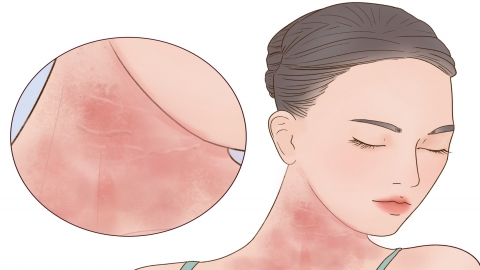Why does my neck feel better only after cracking it every day?
Under normal circumstances, the main reasons why some people feel the need to crack their neck every day to feel comfortable include gas release from cervical joints, neck muscle tension, cervical facet joint dysfunction, neck and shoulder fasciitis, and degenerative changes in the cervical spine. If discomfort occurs, it is recommended to seek timely medical evaluation and treatment at a正规 hospital. Detailed explanations are as follows:
1. Gas Release from Cervical Joints
When cervical joints move, changes in joint cavity pressure cause dissolved gases in the synovial fluid to escape, producing a cracking sound. After cracking, the pressure in the joint is temporarily relieved, leading to a feeling of comfort. To prevent potential harm, avoid frequently cracking your neck or overusing the cervical spine. Instead, gently rotate your neck slowly to relax the joints, and avoid maintaining the same posture for prolonged periods.

2. Neck Muscle Tension
Prolonged use of mobile phones or computers while looking down can lead to sustained tension in the neck muscles. Cracking the neck may briefly relieve this tension, creating a temporary sensation of comfort. Improve sitting and standing posture, take breaks every hour to stretch and move the neck, perform the "Chinese character 'mi'-shaped" neck exercises, and apply warm compresses to the neck for 15–20 minutes to help relieve muscle tightness.
3. Cervical Facet Joint Dysfunction
Slight misalignment of the small cervical joints restricts joint movement. The cracking sound may indicate temporary realignment of the joint, which reduces discomfort. Under medical guidance, medications such as Eperisone Hydrochloride Tablets, Celecoxib Capsules, or Diclofenac Sodium Sustained-Release Tablets may be used. Professional manual therapy can help correct joint positioning; avoid forcefully cracking the neck on your own.
4. Neck and Shoulder Fasciitis
Inflammation of the neck and shoulder fascia caused by strain or cold exposure leads to muscle stiffness and restricted joint movement. Cracking the neck may temporarily relieve discomfort due to fascial stretching. Under medical supervision, nonsteroidal anti-inflammatory drugs such as Ibuprofen Sustained-Release Capsules, Loxoprofen Sodium Tablets, or Naproxen Sodium Tablets may be taken. Physical therapy at the affected area is also helpful. Keep the neck and shoulders warm and avoid excessive fatigue.
5. Degenerative Changes in the Cervical Spine
With aging or chronic strain, degeneration of intervertebral discs and bone spurs may develop, increasing friction during joint movement. Cracking the neck may temporarily improve range of motion. Under medical advice, supplements such as Glucosamine Hydrochloride Capsules, Chondroitin Sulfate Sodium Tablets, or Etoricoxib Tablets may be used. Use a supportive cervical pillow to maintain proper spinal curvature and undergo regular cervical spine check-ups.
In daily life, maintain proper sitting and standing postures and avoid prolonged head-down positions. Limit the frequency of neck cracking to prevent joint damage. Strengthen neck and shoulder muscles through exercises such as wall-supported chin tucks. Keep the neck and shoulders warm to prevent cold exposure, and engage in regular cervical spine care to reduce the risk of degenerative changes.




